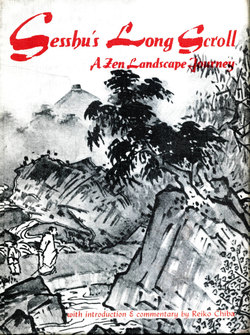Читать книгу Sesshu's Long Scroll - Reiko Chiba - Страница 5
На сайте Литреса книга снята с продажи.
ОглавлениеINTRODUCTION
The Japanese value Sesshu as the greatest of all their artists, and the Long Landscape Scroll, here reproduced in its entirety, is his acknowledged masterpiece.
In considering Sesshu and his work, it is well to remember his concurrent role as a Zen priest. He was born in 1420 near Okayama, in the southern part of Japan's main island. Tradition says he was a rather unruly boy. His mother therefore must have felt a measure of relief in turning him over to the local Zen temple for training and discipline when he was about ten years old. Even the priests found him a bit hard to handle. The most famous myth concerning his youth records that after a particularly trying day his instructor was forced to punish him by tying him to a temple post. At the end of a few hours, Sesshu cried so bitterly that tears fell to his feet. Thereupon, with the tears as ink, he drew such a realistic rat in the dust that the rat came to life, gnawed the ropes, and set him free.
Sesshu, however, matured early and at the age of twenty advanced to the famous Sokoku-ji, a temple in Kyoto where he made rapid progress both as an artist and as a popular figure in the Zen denomination. A most important thing to remember about Sesshu is his versatility. He was a whole man in the sense that we in the West frequently associate with great Renaissance figures. Although a devout Zen Buddhist, he was in no sense a recluse or hermit. In addition to being a painter he was an accomplished poet and landscape gardener. While at the great Sokoku-ji he was selected to act as host and entertainer for visiting dignitaries. He was also a businessman, trusted with the purchase and evaluation of art objects and given considerable authority on one of the great contemporary trading expeditions to China. Sesshu enjoyed company and parties. He was an inveterate traveler, most famous in his day for his long journey to China but always restlessly on the move in Japan until the end of his long, full life at the age of eighty-six.
